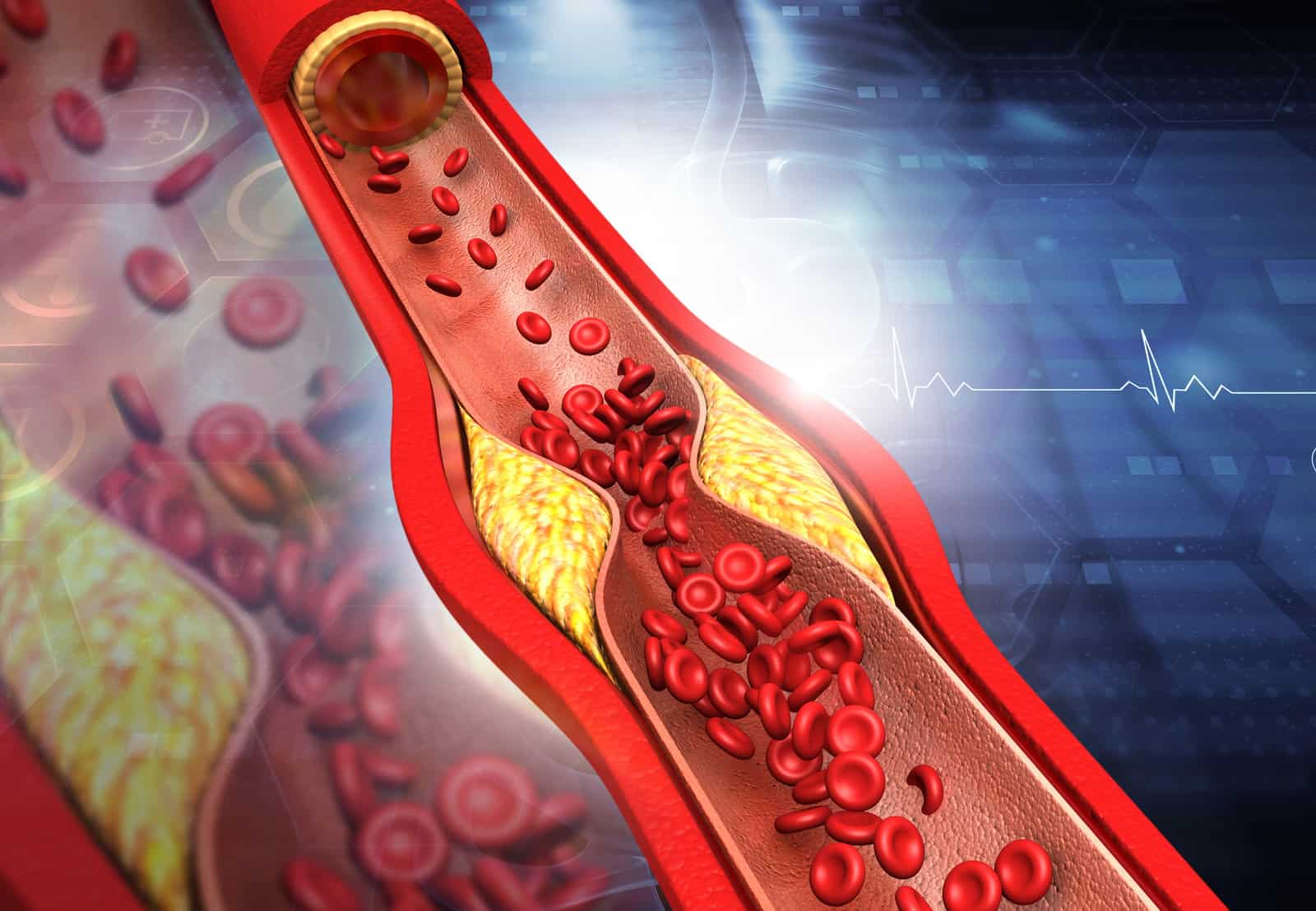Cholesterol

Cholesterol is a waxy, fat-like substance that's found in all the cells in your body. Your body needs some cholesterol to make hormones, vitamin D, and substances that help you digest foods.
But too much cholesterol can be harmful. It can build up in the arteries that supply blood to your heart and brain. Over time, this buildup can lead to a heart attack or stroke.
You get cholesterol from two sources: your body makes it and you get it from the food you eat. Your liver makes all the cholesterol your body needs. But dietary cholesterol, which is found in animal foods like meat, poultry, eggs, and dairy products, can add to the amount of cholesterol in your blood.
Saturated and trans fats are the two main dietary culprits that contribute to high cholesterol. Saturated fats, found mostly in animal products, increase your total cholesterol level more than anything else in your diet.
Trans fats, often called "trans fatty acids," are created when manufacturers turn liquid oils into solids (a process called hydrogenation). Trans fats are found in many commercially baked goods, such as cookies and crackers, as well as fried foods, such as doughnuts.
You can also have high cholesterol if it runs in your family. In fact, genetics is thought to account for about one-third of all cases of high cholesterol. Other risk factors include diabetes, being overweight or obese, smoking, and not getting enough exercise.
High cholesterol doesn't usually have any symptoms, so you may not know that you have it. That's why it's important to get your cholesterol checked regularly, starting at age 20.
Treatment for high cholesterol typically involves lifestyle changes, such as exercising and eating a healthy diet, and may also require medication.
Books discussing Cholesterol

The Paleo Cardiologist
Heart disease is the leading cause of death in many countries. Unfortunately, millions are affected by abnormal cholesterol levels, high blood...

Reverse Heart Disease Now
In contrast to the majority of books that solely explore cholesterol's involvement in heart disease, Reverse Heart Disease Now delves further into...

The Great Cholesterol Myth
Heart disease is the number one cause of death, yet traditional heart health protocols overlook crucial components by primarily focusing on reducing...

Healing is Voltage
Human cells are designed to run at an electrical voltage of -20 to -25 millivolts, which is required for healing. Sadly, when the voltage drops below...

Save Your Gallbladder and what to do if you've already lost it
If you are experiencing gallbladder issues, this book will provide the answers regardless of whether or not you have had yours removed. With its...
Experts discussing Cholesterol
Dr. Jack Wolfson, DO, FACC
Cardiologist and founder of NaturalHeartDoctor.Dr. Stephen T. Sinatra, MD., FACC., FACN., CNS
A successful author and was a board-certified cardiologist, certified bioenergetic psychotherapist, and certified nutrition and anti-aging specialist.Dr. Jonny Bowden, Ph.D., CNS
Best-selling author, functional nutritionist, weight-loss and anti-aging expert.Dr. Jerry L. Tennant, MD, MD(H), PScD
Author, founder of Tennant Institute for Integrative Medicine, and a leader in functional medicine.Dr. Sandra Cabot, MD
For over four decades, a renowned medical doctor has authored more than thirty bestselling books on health, one of them being the critically acclaimed "Liver Cleansing Diet" book.Dr. Margaret Jasinska, ND
An author, a naturopath specializing in gut health, thyroid conditions, autoimmune disease, fatty liver, and diabetes.